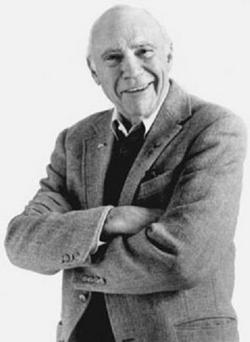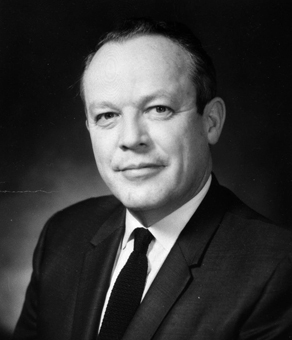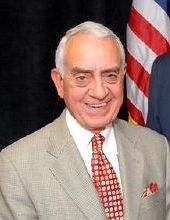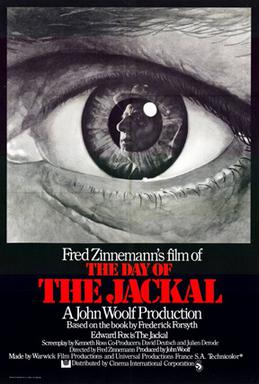Related Research Articles

The Watergate scandal was a major political scandal in the United States involving the administration of President Richard Nixon which began in 1972 and ultimately led to Nixon's resignation in 1974. It revolved around members of a group associated with Nixon's 1972 re-election campaign breaking into and planting listening devices in the Democratic National Committee headquarters at the Watergate Office Building in Washington, D.C., on June 17, 1972, and Nixon's later attempts to hide his administration's involvement.

All the President's Men is a 1974 non-fiction book by Carl Bernstein and Bob Woodward, two of the journalists who investigated the June 1972 break-in at the Watergate Office Building and the resultant political scandal for The Washington Post. The book chronicles the investigative reporting of Woodward and Bernstein from Woodward's initial report on the Watergate break-in through the resignations of Nixon Administration officials H. R. Haldeman and John Ehrlichman in April 1973, and the revelation of the Oval Office Watergate tapes by Alexander Butterfield three months later. It relates the events behind the major stories the duo wrote for the Post, naming some sources who had previously refused to be identified for their initial articles, notably Hugh Sloan. It also gives detailed accounts of Woodward's secret meetings with his source Deep Throat, whose identity was kept hidden for over 30 years. Gene Roberts, the former executive editor of The Philadelphia Inquirer and former managing editor of The New York Times, has called the work of Woodward and Bernstein "maybe the single greatest reporting effort of all time."

Nixon is a 1995 American epic historical drama film directed by Oliver Stone, produced by Stone, Clayton Townsend, and Andrew G. Vajna, and written by Stone, Christopher Wilkinson, and Stephen J. Rievele, with significant contributions from "project consultants" Christopher Scheer and Robert Scheer. The film tells the story of the political and personal life of former U.S. President Richard Nixon, played by Anthony Hopkins.

Elliot Lee Richardson was an American lawyer and Republican politician. As a member of the cabinets of Richard Nixon and Gerald Ford between 1970 and 1977, Richardson is one of two men in United States history to hold four cabinet positions. As United States Attorney General, Richardson played a prominent role in the Watergate scandal when he resigned in protest against President Nixon's order to fire special prosecutor Archibald Cox. His resignation precipitated a crisis of confidence in Nixon which ultimately led to the president's resignation.

Eugene Levy is a Canadian actor and comedian. Known for portraying flustered and unconventional figures, Levy has won multiple accolades throughout his career including four Primetime Emmy Awards, a Grammy Award, and a Screen Actors Guild Award. He was appointed to the Order of Canada in 2011, and was made Companion of the Order of Canada in 2022.

Louis Patrick Gray III was acting director of the Federal Bureau of Investigation (FBI) from May 3, 1972, to April 27, 1973. During this time, the FBI was in charge of the initial investigation into the burglaries that sparked the Watergate scandal, which eventually led to the resignation of President Nixon. Gray was nominated as permanent Director by Nixon on February 15, 1973, but failed to win Senate confirmation. He resigned as Acting FBI director on April 27, 1973, after he admitted to destroying documents that had come from convicted Watergate conspirator E. Howard Hunt's safe—documents received on June 28, 1972, 11 days after the Watergate burglary, and given to Gray by White House counsel John Dean.

Deep Throat is the pseudonym given to the secret informant who provided information in 1972 to Bob Woodward, who shared it with Carl Bernstein. Woodward and Bernstein were reporters for The Washington Post, and Deep Throat provided key details about the involvement of U.S. president Richard Nixon's administration in what came to be known as the Watergate scandal. In 2005, 31 years after Nixon's resignation and 11 years after Nixon's death, a family attorney stated that former Federal Bureau of Investigation (FBI) Associate Director Mark Felt was Deep Throat. By then, Felt was suffering from dementia and had previously denied being Deep Throat, but Woodward and Bernstein then confirmed the attorney's claim.

Emanuel Hirsch Cohen, better known by the stage name John Randolph, was an American film, television and stage actor.

Richard Gordon Kleindienst was an American lawyer, politician, and U.S. Attorney General during the early stages of Watergate political scandal. He resigned his post in disgrace for his involvement in the Watergate cover-up.

Edward Paul Flanders was an American actor. He is best known for playing Dr. Donald Westphall in the medical drama series St. Elsewhere (1982–1988). Flanders was nominated for eight Primetime Emmys and won three times in 1976, 1977, and 1983.

Cornelius Francis "Neil" Hartigan is an American lawyer, judge, and politician who served as the Attorney General of Illinois and the 40th Lieutenant Governor of Illinois. He is a member of the Democratic Party.
The Phenix City Story is a 1955 American film noir crime film directed by Phil Karlson for Allied Artists, written by Daniel Mainwaring and Crane Wilbur and starring John McIntire, Richard Kiley, and Kathryn Grant. It had a triple premiere held on July 19, 1955 in Phenix City, Alabama, Columbus, Georgia, and Chicago, Illinois.

The director of the Federal Bureau of Investigation is the head of the Federal Bureau of Investigation, a United States federal law enforcement agency, and is responsible for its day-to-day operations. The FBI director is appointed for a single 10-year term by the president of the United States and confirmed by the Senate. The FBI is an agency within the Department of Justice (DOJ), and thus the director reports to the attorney general of the United States.

Kenneth L. Khachigian is an American political consultant, speechwriter, and attorney. He is best known for being a longtime aide to President Richard Nixon and chief speechwriter to President Ronald Reagan.

The Day of the Jackal is a 1973 political thriller film directed by Fred Zinnemann and starring Edward Fox and Michael Lonsdale. Based on the 1971 novel of the same name by Frederick Forsyth, the film is about a professional assassin known only as the "Jackal" who is hired to assassinate French president Charles de Gaulle in the summer of 1963.

The Night Stalker is an American made for television horror film which aired on ABC on January 11, 1972, as their ABC Movie of the Week. In the film, an investigative reporter, played by Darren McGavin, comes to suspect that a serial killer in the Las Vegas area is actually a vampire.
Dan Resin was an American actor.

Tod Andrews was an American stage, screen, and television actor.

First Family is a 1980 American comedy film written and directed by comedian and actor Buck Henry, and starring Bob Newhart, Madeline Kahn, Gilda Radner, Harvey Korman, Rip Torn, Austin Pendleton, Fred Willard and Richard Benjamin. It received negative reviews.
The presidency of Richard Nixon began on January 20, 1969, when Richard Nixon was inaugurated as the 37th president of the United States, and ended on August 9, 1974, when, in the face of almost certain impeachment and removal from office, he resigned the presidency.
References
- ↑ Filmmakers Newsletter - Volume 6 - Page 127 1972 - Strictly in the wrong place is Fred Levenson's American production, HAIL! This is a slick, sick, slapstick ... the end, though, HAIL! falls flat mainly for lack of backbone. .
- ↑ New York Times July 28, 1973: Screen 'Hail to the Chief':Farce on the President Is at the Playboy "No more Congress!" shouts the President of the United States. "No more Supreme Court! Just me!" The President, who looks a lot like Bob Newhart and is played by another seriously comic actor named Dan Resin, can barely contain his old-fashioned, down-home joy. Sufferin' catfish! He can now give full rein to his paranoia, so that the Attorney General is able to warn that "the Commies and their dupes" (pronounced "doo-pays") "will have to go elsewhere for their revolution."